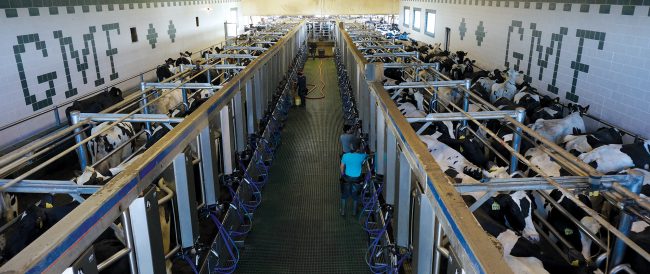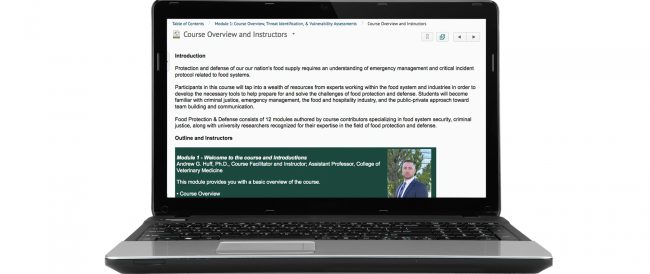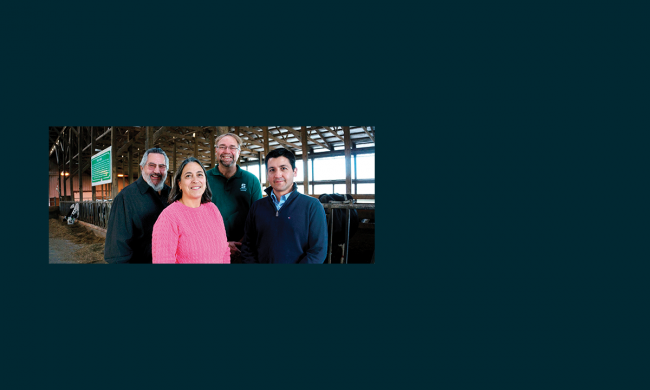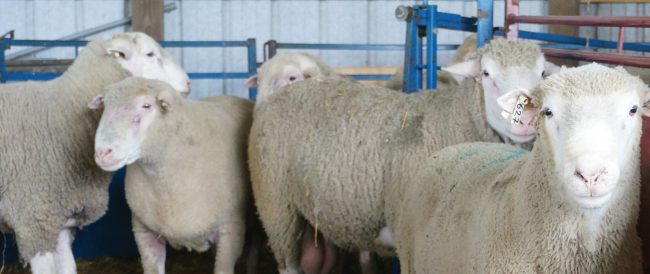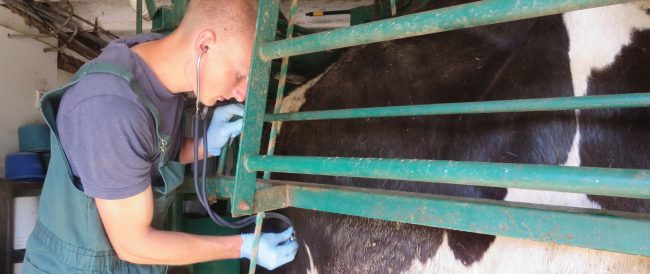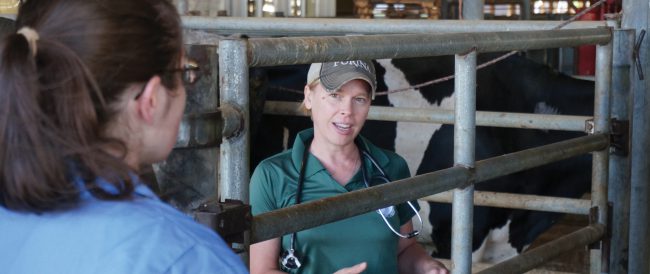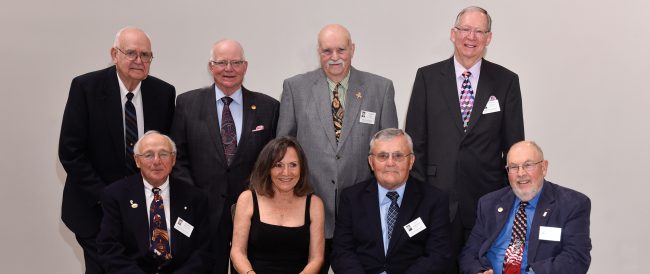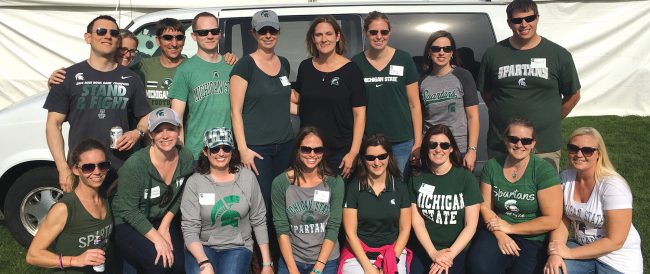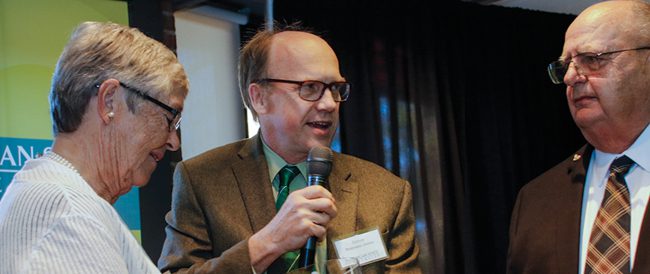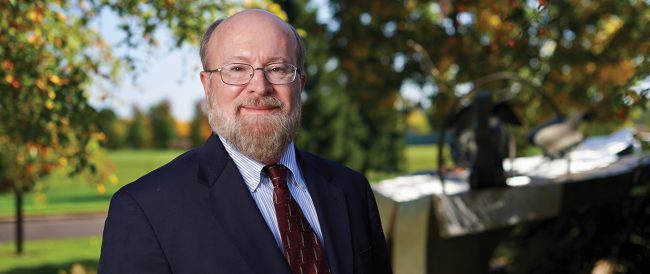 Read More
Read More
In its mission to Learn, Discover, Heal, and Protect, the MSU College of Veterinary Medicine is reinventing its DVM curriculum. Students interested in food animal medicine, surveillance, and public health can make good use of the curriculum’s three enhanced features: earlier engagement with career interests, career competency-driven clinics and preceptorships, and hands-on experience.
Reinventing the Curriculum
By Robert L. Hill
The MSU College of Veterinary Medicine’s curriculum reinvention transforms the student experience in order to better prepare graduates to serve as veterinarians while taking into account dimensions of wellness, the financial cost of education, and advances in teaching practice.
The reinvented curriculum involves systems-based courses organized sequentially, driven by essential and career-path competencies. Students also will participate in concurrent, integrated opportunities for hands-on learning and professional development, as well as an innovative new seminar, Animals in Society. The third year of the curriculum introduces problem-based scenarios with increasing complexity, as well as a junior clinics period in which DVM students will shadow veterinary practitioners to prepare for clerkships. At the end of their clinical rotations, students will begin an eight-week preceptorship, during which time they will practice as a DVM graduate might, while under the supervision of a veterinarian.
The flexibility of the reinvented curriculum allows for students to become competent in fundamental areas for all veterinarians while pursuing their own interests. During intersessions between first- and second-year courses, students can work with a veterinarian or agency of their choosing and advance their portfolio through additional professional development experiences.
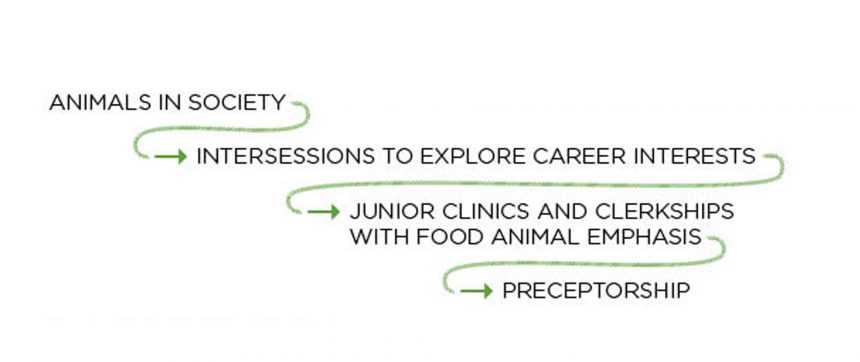
Opportunities for Food Animal Veterinarians
With opportunities to engage with all species, career paths, and specializations, students will be able to grow as well-rounded veterinarians who are ready to begin their careers in veterinary medicine.
Earlier engagement with career interests
The first course in the reinvented curriculum, Animals in Society, is intended to give DVM students an orientation to their education and career as a veterinarian. Among other fundamentals, students will learn about the relationships between veterinarians, farms, regulation agencies, and the consumer. This way, DVM students of all career interests can learn how essential veterinarians are in food production. This allows students interested in food animals to dive deeper into their field while giving small animal or other types of veterinarians the skills to educate the public as necessary.
Intersessions between courses will give students brief opportunities to review prior content and explore career interests. These time periods present unique opportunities for students to craft their veterinary medical education to fit their interests. During intersessions, the student interested in food production might take the time to assist a large animal veterinarian, intern with a regulatory agency, or take an advanced seminar relevant to their interests.
Career competency-driven clinics and preceptorships
The junior clinics and clerkships will allow students to complete practice-based objectives, which correspond to each student’s intended career path. Large animal faculty and practitioners will be able to work with students to practice in clinical rotations that prepare them for any DVM pathway while maintaining a strong connection to food animal practice.
The preceptorship allows students to practice as a professional while under the supervision of a veterinarian. This preceptorship will allow students to demonstrate their mastery of competencies in the practice of their choice.
Hands-on experience
The learner-centered focus of the reinvented curriculum involves more active experiences on the part of the students, such as applying their learning to models and other simulations, as well as working with live animals. “Simulation models are key for our students to develop fine motor skills and basic techniques,” says Dr. Jennifer Roberts, assistant professor for the Department of Large Animal Clinical Sciences, who has been involved in the curriculum reinvention process.
On the Horizon
The reinvented curriculum will roll out in fall 2018, but current DVM students are able to take advantage of certain aspects of this innovative new curriculum now. Faculty and staff are hard at work developing the new courses to improve veterinary medical education. As the College continues to prepare students for a diverse range of careers, students looking to enter food animal practice will benefit from increased exposure to their interests and more early hands-on experience.



